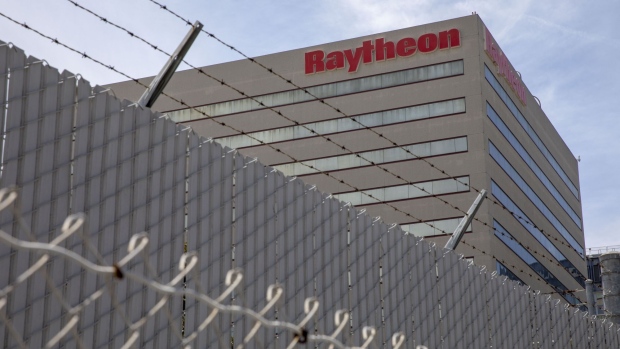Oct 31, 2022
Raytheon Wires $1 Million to Whistleblower Over Fake GPS Test Results for Air Force
, Bloomberg News

(Bloomberg) -- A whistleblower said Raytheon Technologies Corp. has paid him $1 million after he was punished for revealing that he was instructed to submit false test results to the US Air Force on the company’s troubled ground system for GPS satellites.
Former Raytheon engineer Bruce Casias said in an email that he received the million-dollar wire payment on Thursday. That was after the defense contractor let a mid-October deadline pass to mount a Supreme Court challenge to a 3-0 ruling by the 10th US Circuit Court of Appeals upholding a jury award in his favor.
Raytheon’s program to create new ground stations for Global Positioning System satellites remains years behind the original schedule and has soared in cost from $3.9 billion to an estimated $6.3 billion.
Casias, of Denver, presented evidence at trial to show Raytheon demoted him for reporting to management that a superior told him to falsify test results starting in November 2015 on the Raytheon network of worldwide ground stations and antennas called the Operational Control System, or OCX, the appeals court said in its July ruling.
Raytheon spokesman Chris Johnson said the Waltham, Massachusetts-based company had no comment on the case. Company officials say the ground station project is now on track.
“Raytheon’s performance remains in line with government expectations, considering the large scale of software and Covid-related impacts” since 2020, Major Remoshay Nelson, an Air Force spokesperson, said in a statement. The system “has moved on to the final pre-delivery stages,” she said.
The Global Positioning System developed and operated by the U.S. military is ubiquitous, providing turn-by-turn directions on the smartphones of drivers as well as coordinates for smart bombs. The new ground system is needed to take full advantage of improved GPS III satellites being built by Lockheed Martin Corp. They promise increased accuracy for navigation, a signal compatible with similar European satellites and improved resistance against cyberattacks.
‘Falsified Information’
Raytheon “falsified information for use by the United States military -- this, if left unchecked and undiscovered, could have far-reaching repercussions,” the appeals court said in its ruling. “Then, when an employee attempted to report the falsification, it removed him from his data-collection role entirely. This is a serious violation” of the Defense Contractor Whistleblower Act, according to the court.
“Over the next months, Casias received emails from the Air Force asking why the data was suddenly different,” the court said. “He responded only to defer the questions” to the superior who directed the falsification, it said. At the time “the project was going poorly -- it was far behind schedule and more than $1 billion over budget,” the court said.
Casias has said he was reassigned from his OCX testing position to a minor role managing only two employees, eventually left Raytheon and then sued for violations of the whistleblower law. “Casias contacted both Raytheon’s Ethics Department” and the Pentagon fraud hotline, the court said.
The Pentagon decided in late 2015 to stick with the Raytheon contract rather than cancel it over delays. Months later the head of the Air Force Space and Missile Systems Center said that Raytheon’s OCX was the Defense Department’s “No. 1 troubled program.”
The Air Force was forced in 2016 to hire Lockheed to provide initial controls for the new ground system. Raytheon’s program is now on track for qualification testing in November before a December delivery, the service said.
Sandy Brown, a vice president at Raytheon Intelligence & Space, said the company has completed the deployment and integration of 17 globally distributed monitoring stations and four ground antennas. It has also finished deployment of the Master Control Station at Schriever Space Force Base in Colorado Springs, he said.
The system is expected to become operational in April 2023. The originally planned date was October 2016, according to Air Force records.
©2022 Bloomberg L.P.





